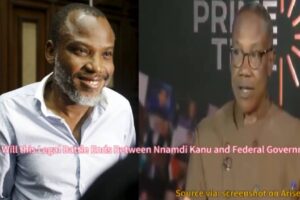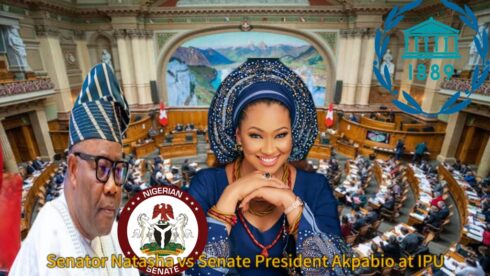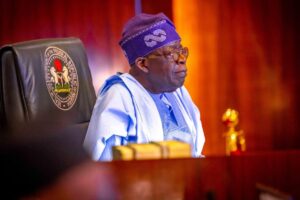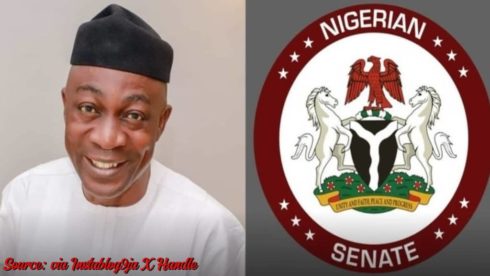The Nigerian Senate has moved swiftly to address recent allegations regarding the monthly compensation of its members. The controversy erupted when Senator Abdurrahman Kawu Sumaila claimed that each senator receives N21 million monthly in salaries and allowances. This assertion quickly gained traction in the media and sparked intense public debate about the financial privileges of elected officials.
In response to the growing controversy, Nigerian Senate spokesman Senator Yemi Adaramodu has issued a clarification. He emphasized that the N21 million figure refers to running costs for senators’ offices and is not, as previously alleged, a personal salary or allowance. This distinction is crucial for understanding the allocation and use of public funds within the legislative branch.
Nigerian Senate: Distinguishing Between Running Costs and Personal Compensation
Senator Adaramodu’s statement draws a clear line between operational expenses and personal remuneration. He stressed that senators’ salaries and personal allowances are determined by the Revenue Mobilisation, Allocation, and Fiscal Commission (RMAFC), an independent body tasked with setting compensation for public officials. According to RMAFC chairman Mohammed Bello, the actual monthly salary and allowances for each senator total N1,063,860, a figure significantly lower than the controversial N21 million.
The Senate spokesman further elaborated that running costs are essential for the day-to-day operations of senators’ offices. These funds cover expenses such as staff salaries, constituency outreach, and other official duties. Adaramodu emphasized that these operational costs are subject to strict accountability measures and are not part of senators’ personal income.
Nigerian Senate: Running Costs: A Standard Practice Across Government
In his clarification, Senator Adaramodu highlighted that the allocation of running costs is not unique to the legislature. He pointed out that this practice is standard across all levels and branches of government, from local councils to federal ministries. These funds are essential for the effective functioning of government offices and the delivery of services to citizens.
Adaramodu stressed that running costs are meticulously accounted for and can only be used for official purposes. Each expenditure must be supported by proof of genuine use, ensuring that these funds are not misappropriated for personal gain. This system of checks and balances is designed to maintain the integrity of public fund usage within the legislative branch.
Nigerian Senate: Transparency and Accountability in Public Fund Usage
The Senate’s prompt response to the controversy underscores its commitment to transparency and accountability. By providing a detailed explanation of the distinction between running costs and personal compensation, the Senate aims to foster public understanding of legislative finances. This move is seen as a step towards rebuilding trust between elected officials and the citizenry.
Financial experts have welcomed this clarification, noting that transparency in public spending is crucial for maintaining democratic integrity. However, some civil society organizations have called for even greater disclosure, suggesting that detailed breakdowns of running cost expenditures should be made publicly available to further enhance accountability.
RMAFC’s Role in Setting Official Compensation
The controversy has also shed light on the critical role played by the Revenue Mobilisation, Allocation, and Fiscal Commission (RMAFC) in Nigeria’s governance structure. As an independent body, RMAFC is responsible for determining the appropriate remuneration for public officials, including senators, to ensure fair compensation while safeguarding public resources.
RMAFC chairman Mohammed Bello’s previous statement on senators’ official salaries and allowances has been crucial in providing context to the current debate. The significant disparity between the RMAFC-approved figure and the alleged N21 million highlights the importance of distinguishing between personal compensation and operational funds in discussions about public official remuneration.
Nigerian Senate: Public Reaction and Calls for Further Transparency
While the Senate’s clarification has been welcomed by many, it has also sparked calls for even greater transparency in government spending. Some political analysts argue that this controversy presents an opportunity for a broader discussion on the allocation and use of public funds across all branches of government.
As the debate continues, there is growing public interest in understanding not just the amounts allocated for running costs, but also how these funds are utilized to benefit constituents. This increased scrutiny may lead to further reforms in how public funds are managed and reported, potentially setting new standards for transparency in Nigerian governance.
Table of Contents
Discover more from OGM News NG
Subscribe to get the latest posts sent to your email.














